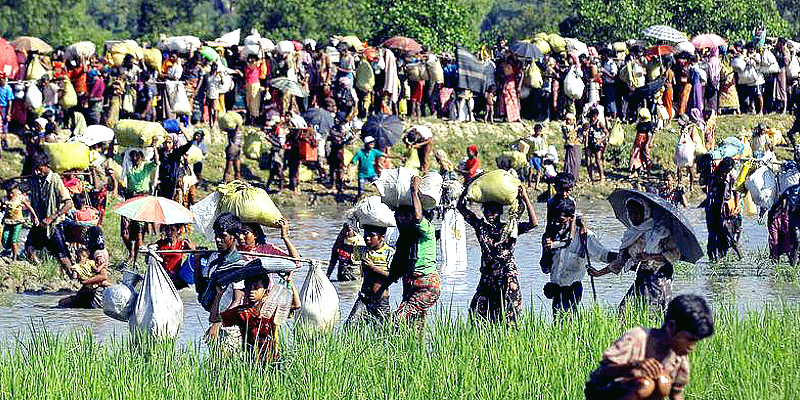We are shocked and dismayed by the news that the United Nations plans to cut food aid to the Rohingya refugees in Bangladesh with full knowledge of how vulnerable this over one million population is and what catastrophic consequences such cuts will have.
The UN is blaming the cuts on funding shortfall but as many international agencies are saying, this harsh decision will lead to greater food insecurity and malnutrition for the Rohingya refugees.
More than a third of Rohingya refugee children are stunted and underweight. Starting next month, WFP is being compelled to reduce the value of its food assistance to US$10 per person from US$12.
We agree with the two UN special rapporteurs who have said that this would have devastating consequences and that it is “unconscionable” to cut rations just before Ramadan.
We have been hearing about cuts in UN funding for Rohingya refugees for the last few years.
In August 2022, the United Nations refugee agency (UNHCR) appealed to the international community for help and cited the plight of the Rohingya refugees who are living in very difficult conditions and who have slim prospects of being rehabilitated to their home country.
Only 49 percent of the US$881 million in the 2022 response plan was given at the time.
Bangladesh has made huge sacrifices to host the refugees and is struggling with the economic, environmental, and social impacts of having such a mammoth refugee population in its land.
The most sustainable solution would be the safe, dignified repatriation of Rohingya refugees, which would give them full citizenship rights. But the international community has failed to broker such a peaceful repatriation.

Given the reality of the Myanmar government’s refusal to take back its people and the growing vulnerability of the Rohingya refugees in the camps, it is shocking that the UN is reconciled with cutting these essential humanitarian funds.
Aid shortages will mean more malnutrition, more diseases, fewer health services, and increased insecurity as violence in the camps will escalate further.
It will also increase the number of desperate, risky journeys made by Rohingyas towards foreign lands – which have often led to tragic deaths.
Thus, an already desolate situation is about to get worse for these victims of genocide and forced displacement.
We join the voices of various agencies working on the ground in their alarm over this decision by the UN to cut aid.
We understand the global pressures of food and general inflation due to the prolonged war in Ukraine. But this is a continuing humanitarian disaster created by Myanmar, one that has imposed a huge burden on Bangladesh – which itself has been impacted by the global economic crisis.
The international community must pool together the funds required to meet the bare minimum humanitarian needs of the Rohingyas until a sustainable solution is found.
ADVERTISEMENT
ADVERTISEMENT








































